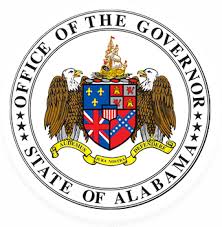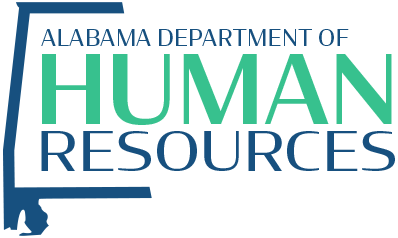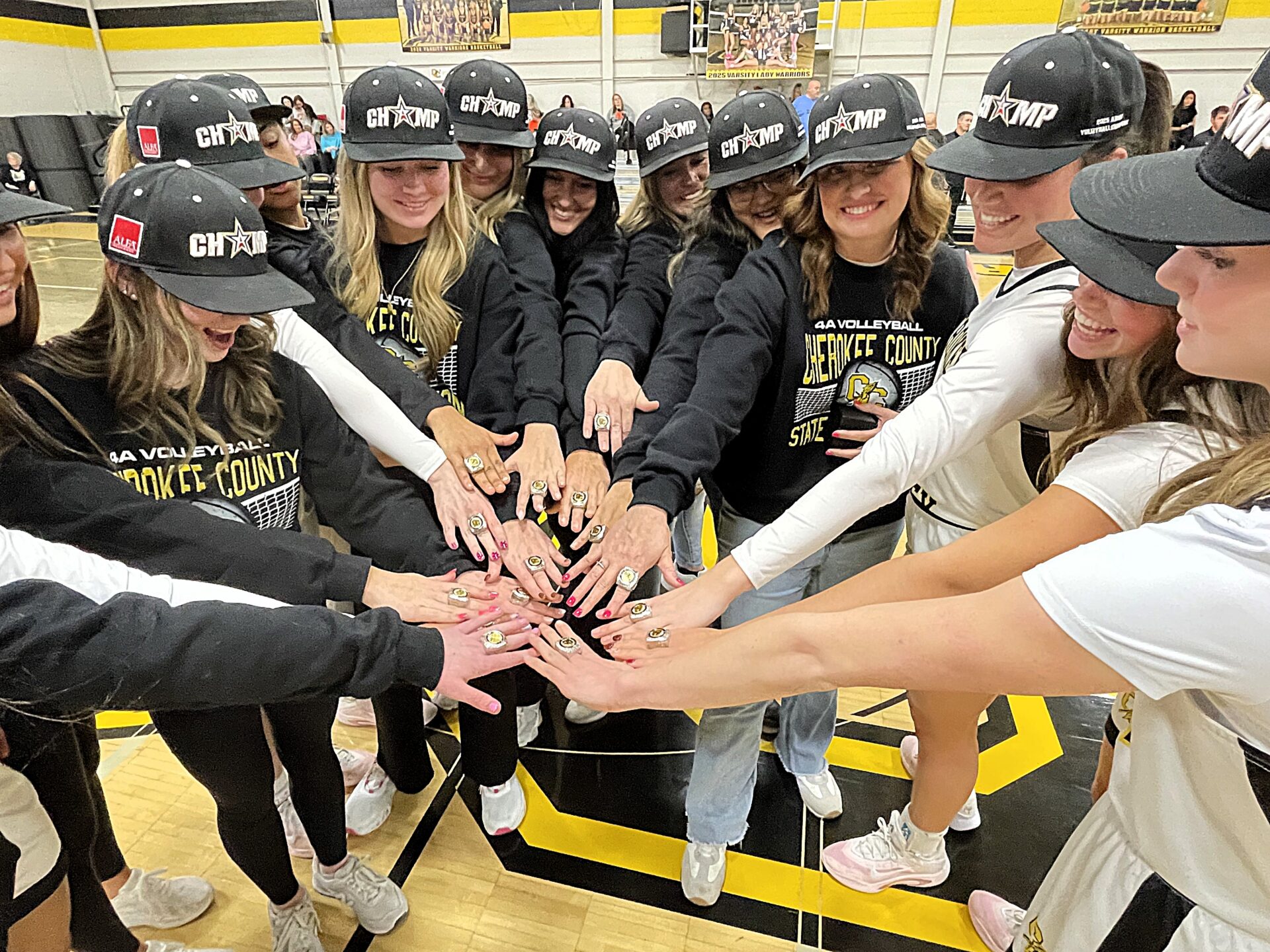.png)
(NEW YORK) — President Donald Trump arrived in South Korea, the third stop on his Asia tour that will culminate in a high-stakes meeting with Chinese President Xi Jinping on Thursday.
Trump touched down in Busan, South Korea, descending down Air Force One onto a red carpet flanked with Korean soldiers.
Trump greeted H.E. Hyun Cho, the foreign minister of the Republic of Korea, and a 21-gun salute followed. The band played a rendition of YMCA after the gun salute.
Trump then headed to the coastal city of Gyeongju for remarks at the Asia-Pacific Economic Cooperation (APEC) summit.
There, the president addressed several key aspects of his Asia trip, including his upcoming meeting with Xi. Trump expressed his hope for a “grand deal” between Washington and Beijing.
“I think we’re going to have a deal,” Trump said. “I think it’ll be a good deal for for both. And that’s really a great result.”
An agreement, Trump continued, would be beneficial for the broader region and “better than fighting and going through all sorts of problems, and, you know, no reason for it.”
Trump also lauded bilateral ties between the U.S. and South Korea, praising South Korean President Lee Jae Myung as “a terrific person.”
“The Republic of Korea is a cherished American friend and a close ally, and as we can see in this beautiful city, it’s truly one of the most remarkable nations anywhere on Earth,” Trump said.
Later, at an APEC leaders’ working dinner, Trump said the bilateral meetings were “tremendous” and produced a “pretty much finalized” trade deal with South Korea.
The president used his APEC address to tout his domestic and foreign economic strategies.
Trump said the tax cuts within the Big Beautiful Bill were a “tremendous success” for the return of manufacturing to America, and described himself as a president that “cuts through the red tape and excuses.”
Trump also celebrated Nvidia and TSMC for creating the first Blackwell AI Chip in the U.S. which he says is a chip “10 years advanced.”
The president claimed that his administration had secured upwards of $22 trillion in foreign investments coming into the U.S.
Trump said the figure included some $10 billion in investment by Japanese auto giant Toyota to build new car plants in “six or seven” states.
The president said the U.S. and South Korea would partner on ship building, referring to the Hanwha Group’s acquisition of the Philly Shipyard.
Trump added that his use of tariffs was “strengthening our alliances” and “also bringing peace to the world.”
“The only [deal] I didn’t do is Russia-Ukraine,” the president added. “But that’ll get done too. That’ll get done. I thought that was going to be an easy one because of my relationship with [Russian] President [Vladimir] Putin. He turned out to be a little different. But I think it’ll get done.”
Trump-Xi meeting on the horizon
Trump’s most anticipated meeting on the three-country tour is with China’s Xi on Thursday, with a goal to end a month-long trade war between the world’s two largest economies.
Trump and Xi are set to meet on the sidelines of the Asia-Pacific Economic Cooperation Summit in Busan, South Korea, according to the White House. It will be their first face-to-face meeting since Trump’s return to office.
China’s state-run Xinhua news agency, citing a Chinese Foreign Ministry spokesperson, also reported on Wednesday that the meeting will occur in Busan on Thursday.
Trump expressed optimism on striking a deal with Xi, telling reporters on Air Force One that he thinks there will be a “successful transaction.”
“We’re going to have a great talk. I have a lot of respect for President Xi. I like him a lot. He likes me a lot,” Trump said as he flew to Japan. On Wednesday, the president said he expected the meeting with Xi to last for three or four hours.
Treasury Secretary Scott Bessent, on ABC’s “This Week” on Sunday, said the administration reached a “substantial framework” in tariff negotiations with Chinese counterparts ahead of Thursday.
“The president had given me maximum leverage when he threatened 100% tariffs if the Chinese imposed their rare earth global export controls, so I think we have averted that,” Bessent said, adding that the levies on Chinese goods would be avoided if the deal holds.
Bessent didn’t provide specifics on the framework, but suggested American soybean farmers would be happy. Farmers have been caught in the administration’s global tariff fight, particularly with China importing more soybeans than any other country, but currently buying none from the U.S.
“I believe, when the announcement of the deal with China is made public, that our soybean farmers will feel very good about what’s going on, both for this season and the coming seasons, for several years,” Bessent said.
Will Trump meet with Kim Jong Un?
While in Asia, Trump has faced questions on whether he will try to meet with North Korea’s Kim Jong Un. The two men met three times during Trump’s first term, and Trump was the first sitting U.S. president to step into North Korea.
“I’d love to meet with him if he’d like to meet. I got along great with Kim Jong Un. I liked him. He liked me. If he wants to meet, I’ll be in South Korea,” Trump said on Air Force One.
Trump even said he was open to possibly extending his trip, which is set to wrap on Thursday.
“I think the answer would be yeah. I would do that, sure,” Trump told reporters when asked if he’d stay in Asia longer to make such a meeting happen.
In Japan, Trump and Prime Minister Sanae Takaichi had a photo spray with families of people who “were abducted by North Korea,” according to a White House official. There were about 20 people there, many holding photos of their loved ones taken by North Korea. Trump said he recognized some of the families from his visits during his first term.
Trump was then asked by a reporter whether he plans to discuss the abducted people with the North Korean leader, but Trump said that he has not yet spoken to Kim.
“We’re going to see what’s going on. We have not done anything. We’ve been so busy. We really haven’t, but we’ll be discussing it,” Trump said.
Trump talks trade with Japan’s new prime minister — first woman to serve in role
Trump visited with Japan’s Emperor Naruhito on Monday after landing in Tokyo. On Tuesday, Trump met with Japan’s new Prime Minister Sanae Takaichi.
Takaichi, a conservative, is the country’s first woman to serve as prime minister. Trump congratulated her on her election victory earlier this month, calling it “incredible news” for Japan. Takaichi is a protege of the late Shinzo Abe, with whom Trump developed a close diplomatic relationship during his first term.
Trump and Takaichi talked trade, with Japan’s previous leadership having agreed to a $550 billion investment in the U.S. in exchange for a 15% tariff rate, as well as security.
“Now both Japan and the United States have developed the greatest alliance in the world, and together with you, Japan is ready to contribute towards peace and stability,” Takaichi said during the meeting.
The prime minister noted that Japan will gift the U.S. with 250 cherry blossom trees to Washington, D.C., in honor of America’s 250th anniversary in 2026. White House press secretary Karoline Leavitt told reporters that during their bilateral meeting, Takaichi told the president that she nominated him for the Nobel Peace Prize and presented the papers to him.
The leaders also held a signing ceremony for an implementation of the trade deal that the nations struck. The agreement they signed “confirmed their strong commitment to implementing this GREAT DEAL,” the agreement read. Later, the White House released a fact-sheet detailing some of the investments.
Trump and Takaichi also signed the framework for an agreement to “support the supply of raw and processed critical minerals and rare earths crucial to the domestic industries of the United States and Japan.” The agreement comes as Trump has been working to shore up rare earths deals with nations after China slapped strict export controls on the key minerals causing trade tensions between the U.S. and China.
At a dinner with business leaders in Tokyo, Trump said Japan is opening its market up more to US goods and discussed some of the joint ventures the U.S. is taking part in with Japan, including shipbuilding, semiconductors and critical minerals.
Copyright © 2025, ABC Audio. All rights reserved.




